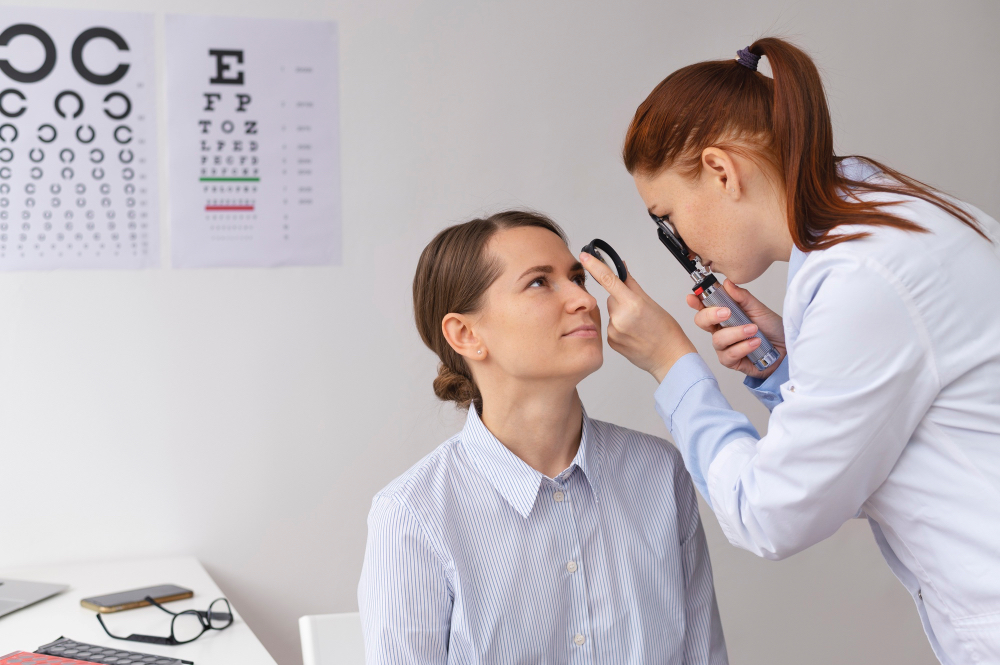
7 Best Supplements for Eye Health To Buy In 2023

Eye health is a crucial aspect of overall well-being, often overlooked until problems arise. With the increasing screen time in our daily lives, taking care of our eyes has become more important than ever. A way to support eye health is through dietary supplements.
Here, we discuss the 7 best supplements for eye health, their benefits, and essential considerations.
Tips for Choosing Supplements for Eye Health
When it comes to selecting the right supplements for maintaining and improving eye health, it’s essential to make informed choices. Here are some key tips to consider:
Understand Your Needs
- Personal Health: Consider any specific eye conditions you have or are at risk for, such as age-related macular degeneration or dry eyes.
- Family History: Be aware of any hereditary eye health issues that may require specific supplements.
Research the Ingredients
- Essential Nutrients: Look for supplements containing key nutrients like Omega-3 fatty acids, Lutein, Zeaxanthin, Vitamins A, C, and E, and Zinc.
- Clinically Proven: Choose ingredients that have been backed by clinical research in supporting eye health.
Quality and Purity
- Reputable Brands: Opt for brands with a good reputation for quality and safety.
- Certifications: Look for products that are certified by third-party organizations like NSF International or USP (United States Pharmacopeia).
Consult with Healthcare Professionals
- Medical Advice: Always consult with an eye care professional or a healthcare provider to get personalized advice based on your health status and needs.
- Medication Interactions: Discuss any potential interactions between the supplement and medications you are currently taking.
Consider Bioavailability
- Absorption: Choose supplements that are easily absorbed by the body. For instance, fat-soluble vitamins should be taken with meals for better absorption.
- Form of Supplement: Some people may prefer capsules over tablets, or vice versa. Liquid supplements are also an option.
Safety and Side Effects
- Adverse Reactions: Be aware of potential side effects and interactions with other supplements or medications.
- Recommended Dosages: Adhere to the recommended dosages to avoid overconsumption, which can be harmful.
Lifestyle and Dietary Habits
- Balanced Diet: Remember that supplements are a complement, not a substitute, for a healthy diet rich in fruits, vegetables, and omega-3s.
- Healthy Lifestyle: Combine supplementation with other healthy lifestyle choices like regular exercise, adequate sleep, and minimizing screen time.
Cost and Value
- Budget-Friendly Options: Compare prices but also consider the quality and concentration of the active ingredients.
- Long-Term Use: Think about the cost over time, as many supplements are taken continuously.
Read Reviews and Testimonials
- User Experiences: Check online reviews and testimonials to gauge the effectiveness of the supplements.
- Realistic Expectations: Remember that individual results may vary.
7 Best Supplements for Eye Health
1. Omega-3 Fatty Acids

Omega-3 fatty acids, found in fish oil, are known for their anti-inflammatory properties. They play a crucial role in retinal health and may help in preventing age-related macular degeneration (AMD).
| Source | Recommended Dosage |
|---|---|
| Fish Oil | 1000 mg daily |
Important Note: Consult your doctor if you are on blood-thinning medication, as Omega-3 can increase bleeding risk.
2. Lutein and Zeaxanthin

These carotenoids are found in the retina and help filter harmful high-energy blue light. They are believed to protect against light-induced oxidative damage that can lead to AMD.
| Source | Recommended Dosage |
|---|---|
| Marigold Flowers (extract) | 10 mg Lutein, 2 mg Zeaxanthin daily |
3. Vitamin C

An antioxidant that helps combat oxidative stress in the eyes. Vitamin C supports the health of blood vessels in the eye and may reduce the risk of cataract formation.
| Source | Recommended Dosage |
|---|---|
| Citrus Fruits (extract) | 500 mg daily |
4. Vitamin E

Another powerful antioxidant, Vitamin E contributes to eye health by protecting cells in the eyes from damage by free radicals.
| Source | Recommended Dosage |
|---|---|
| Nuts and Seeds (extract) | 400 IU daily |
5. Zinc

Zinc plays a vital role in bringing Vitamin A from the liver to the retina. This process is essential for melanin production, a protective pigment in the eyes.
| Source | Recommended Dosage |
|---|---|
| Oyster (extract) | 40-80 mg daily |
6. Vitamin A

Essential for good vision, Vitamin A helps maintain a clear cornea, which is the outside covering of your eye. It’s also crucial in the function of rhodopsin, a protein that lets you see in low light conditions.
| Source | Recommended Dosage |
|---|---|
| Carrot (extract) | 5000 IU daily |
Important Note: Excessive intake of Vitamin A can be toxic. Stick to the recommended dosage.
7. Bilberry Extract

Bilberry, similar to blueberry, contains anthocyanins and is believed to improve night vision and prevent cataract formation.
| Source | Recommended Dosage |
|---|---|
| Bilberry Fruit (extract) | 160-480 mg daily |
Key Considerations When Choosing Supplements
- Quality: Opt for supplements from reputable manufacturers that follow Good Manufacturing Practices (GMP).
- Dosage: Stick to the recommended dosage. Higher doses are not necessarily better and can be harmful.
- Interactions: Some supplements can interact with other medications. Always consult your healthcare provider before starting any new supplement.
- Diet and Lifestyle: Remember, supplements are adjuncts to a healthy diet and lifestyle, not replacements.
Conclusion
Supplements can play a significant role in maintaining eye health, especially in the modern world where digital screen exposure is high. The key is to choose the right supplements and take them in the appropriate dosages.
Always remember to consult with a healthcare professional before starting any new supplement regimen to ensure they are suitable for your individual health needs.
Frequently Asked Questions About Supplements for Eye Health
Q1: What are the most effective supplements for eye health?
A: The most effective supplements typically include ingredients like Omega-3 fatty acids, Lutein, Zeaxanthin, Vitamins A, C, E, and Zinc. These nutrients are known for supporting various aspects of eye health, including reducing the risk of age-related issues.
Q2: Can supplements improve my vision?
A: Supplements can support overall eye health and may help in slowing the progression of certain age-related eye conditions. However, they are not a cure for vision loss or a substitute for corrective lenses and other medical treatments.
Q3: Are there any side effects of taking eye health supplements?
A: Most eye health supplements are safe when taken as directed. However, some may interact with medications or have side effects, especially if taken in high doses. It’s important to consult with a healthcare provider before starting any new supplement.
Q4: How long does it take for eye health supplements to work?
A: The effects of supplements can vary depending on the individual and the specific supplement. Some people may notice changes in a few weeks, while for others, it may take several months to observe any benefits.
Q5: Can I take eye health supplements with other medications?
A: Some supplements can interact with medications, so it’s essential to consult with a healthcare provider before starting any new supplement regimen, especially if you are on medication.
Q6: Should I take supplements for eye health if I have a specific eye condition?
A: Certain supplements may be beneficial for specific eye conditions, but it’s crucial to talk to an eye care professional or healthcare provider for personalized advice based on your condition.
Q7: How do I choose a high-quality eye health supplement?
A: Look for supplements from reputable brands that have been tested for purity and potency. Check for third-party certifications and read the ingredient list to ensure the product contains clinically proven ingredients.
Q8: Can diet alone provide the same nutrients as eye health supplements?
A: A balanced diet can provide many of the nutrients found in eye health supplements. However, supplements can help fill in nutritional gaps, especially for those with dietary restrictions or specific health needs.
Q9: Are there any natural alternatives to commercial eye health supplements?
A: Natural sources rich in eye-healthy nutrients include fatty fish (for Omega-3), leafy green vegetables (for Lutein and Zeaxanthin), and fruits like oranges and berries (for Vitamins C and E). Incorporating these into your diet can support eye health naturally.
Q10: Is it necessary to take supplements for eye health if I have no eye problems?
A: While supplements can be beneficial in maintaining overall eye health, they may not be necessary for everyone. It’s best to discuss this with a healthcare provider, considering your individual health status and nutritional needs.






